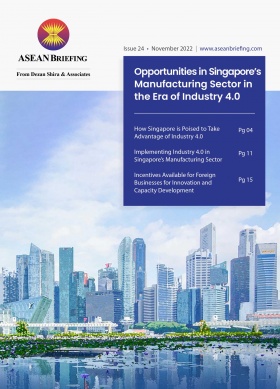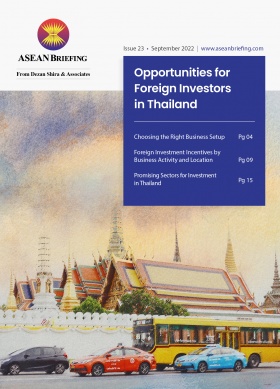Singapore Launches ESG Impact Hub: What it Means for Green Finance
Singapore recently launched the environmental, social, and governance (ESG) Impact Hub to promote the country’s ESG ecosystem and set global standards for green and sustainable finance. The hub will host government-supported industry-driven sustainability initiatives like the Point Carbon Zero Program with Google and the ESG Business Foundry with KPMG.
Singapore recently launched the ESG Impact Hub, a new entity that seeks to promote collaboration on ESG finance. The launch comes shortly after the Singaporean government announced a roadmap to becoming a global leader in green finance and sustainable fintech.
The hub was launched by the Monetary Authority of Singapore (MAS), the country’s central bank, on October 5, 2022. It seeks to spur the ESG ecosystem by facilitating engagement between fintech companies, financial institutions, investors, and other ESG stakeholders.
What is ESG?
ESG refers to a set of corporate governance standards that reflect a company’s impact on environmental, social, and governance externalities. ESG indicators are used by both consumers and investors seeking to make sustainable and socially conscious decisions. They are increasingly being used by investors of all stripes as a means of assessing a company’s risk exposure and growth opportunities.
Who makes up Singapore’s ESG Impact Hub?
The ESG Impact Hub had 15 founding members at launch. Members range from professional service firms specializing in ESG and environmental NGOs to financial institutions and fintech companies.
Recognizing the growing importance of ESG in investment, consumption, and business decisions, Singapore’s establishment of the ESG Impact Hub underlines the country’s role as one of Asia’s leading financial centers.
How will the ESG Impact Hub grow Singapore’s ESG ecosystem?
Specifically, MAS has listed three ways in which the ESG Impact Hub will grow Singapore’s ESG ecosystem.
- Growing ESG FinTechs: The hub will facilitate the discovery, scaling, and deployment of technology solutions to address the ESG needs of corporates and financial institutions, notably in terms of accurate measurement, reporting, and verification of climate and sustainability data.
- Anchoring ESG enablers: MAS will engage knowledge partners, financial institutions, and investors to organize key ESG initiatives out of the hub, such as ESG FinTech accelerator programs, training, and capacity-building workshops, and thought leadership events.
- Supporting ESG stakeholders: MAS will engage the hub community to deploy its programs and solutions to drive material and quantifiable impacts, which support sectoral transition efforts. Emphasis will be given to the eight focus sectors identified by Singapore’s Green Finance Industry Taskforce (GFIT).
Where is the ESG Impact Hub located?
The ESG Impact Hub will be physically located in the Great Room in the Afro Asia building. The Great Room is a coworking space that will offer special benefits for partners of the hub.
How is Singapore promoting ESG development?
The ESG Impact Hub is the Singaporean government’s latest move to promote green finance and an ESG ecosystem. According to the MAS, the hub will “anchor” industry-driven sustainability initiatives that the government is supporting, such as the Point Carbon Zero Program with Google and the ESG Business Foundry with KPMG.
The MAS and Google Cloud jointly launched the Point Carbon Zero Program in July 2022 to promote the innovation, incubation, and scaling of climate fintech in Asia. Specifically, it aims to increase the financial sector’s access to climate-related data as a means of channeling capital toward sustainable investments. The ESG Business Foundry, meanwhile, is a six-month accelerator program designed to help ESG fintech startups scale their businesses.
The ESG Impact Hub and the aforementioned industry collaborations are all part of Singapore’s Project Greenprint. Project Greenprint is an initiative launched by the MAS in December 2020 that seeks to promote a green finance ecosystem through innovation and technology by mobilizing capital, monitoring sustainability commitments, and measuring impact.
Project Greenprint has four main platforms. The MAS envisions these platforms as working together to advance the project objectives. These four platforms are:
- Common ESG Disclosure Platform: A common platform that manages and accesses ESG performance data to meet local and international disclosure requirements.
- Data Orchestrators: A network of data platforms that aggregate and enable access to trusted ESG data sources.
- ESG Registries: A network of registries on the blockchain that records and maintains ESG certifications and verified data.
- Greenprint Marketplace: An open marketplace that connects green technology providers with investors, financial institutions, and companies.
Singapore’s green finance ambitions
The flurry of new initiatives released by MAS in 2022 reflects the Singaporean government’s wider goal to become a world leader in green finance and sustainable fintech. In September 2022, the MAS released the Industry Transformation Map 2025, which aims to grow the country’s already robust finance industry through 2025 by embracing green finance, incubating talent, digitalizing financial infrastructure, and streamlining corporate structures used by investment funds.
As part of the plan, the Singaporean government will provide S$100 million (US$73.61 million) in grant funding for capability building, green fintech, climate risk and reinsurance, and solutions for sustainable and transition finance. The plan also includes efforts to improve ESG disclosures and data utilities, such as through Project Greenprint, as well as to facilitate the decarbonization of the real economy through sustainable financing solutions.
Singapore’s new ESG initiatives show that the country has made progress in developing a green finance industry since it first began issuing green bonds in 2017. Located in a region with pressing environmental concerns, Singapore is positioned to become one of Asia’s premier green finance centers as the industry takes shape in the years ahead.
About Us
ASEAN Briefing is produced by Dezan Shira & Associates. The firm assists foreign investors throughout Asia and maintains offices throughout ASEAN, including in Singapore, Hanoi, Ho Chi Minh City, and Da Nang in Vietnam, Munich, and Esen in Germany, Boston, and Salt Lake City in the United States, Milan, Conegliano, and Udine in Italy, in addition to Jakarta, and Batam in Indonesia. We also have partner firms in Malaysia, Bangladesh, the Philippines, and Thailand as well as our practices in China and India. Please contact us at asia@dezshira.com or visit our website at www.dezshira.com.
- Previous Article New Health Insurance Requirement for Short Term Foreign Workers in Indonesia
- Next Article Indonesia Increases the Minimum Wage for 2023






